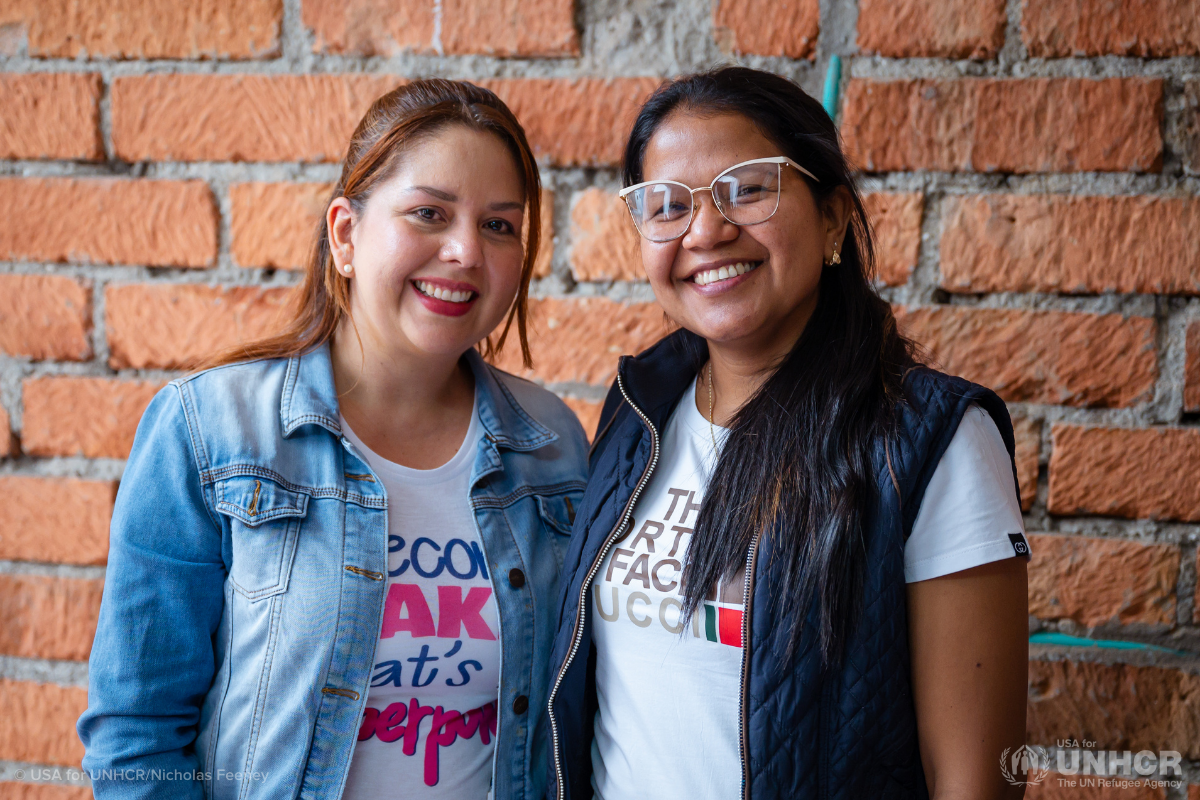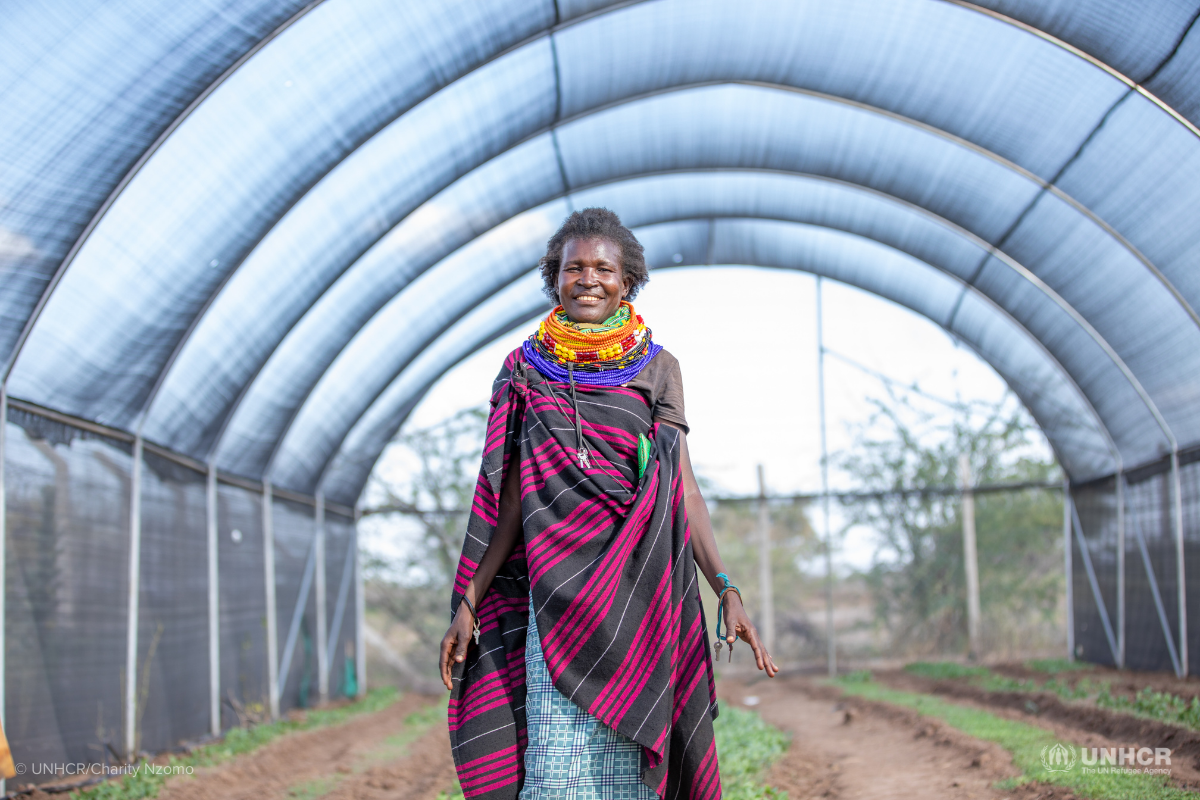Education empowers refugees in the U.S. to do bigger and better things
For many refugees, fleeing home also means leaving behind their schools and studies. Whether they are in grade school or university, refugees flee not knowing if they will ever be able to complete their education. However, once refugees are resettled in the United States and are enrolled in school, doors open again.
Though they face challenges in their new schools — language barriers and cultural differences — refugees are resilient and overcome these challenges and go on to do great things. Many share that they don't know where they would be today if it were not for this opportunity to continue their studies.
Meet some former refugees who now call the U.S. home and see how education has empowered them — from Boise, Idaho to Providence, Rhode Island — and inspired them to do great things.
Halima
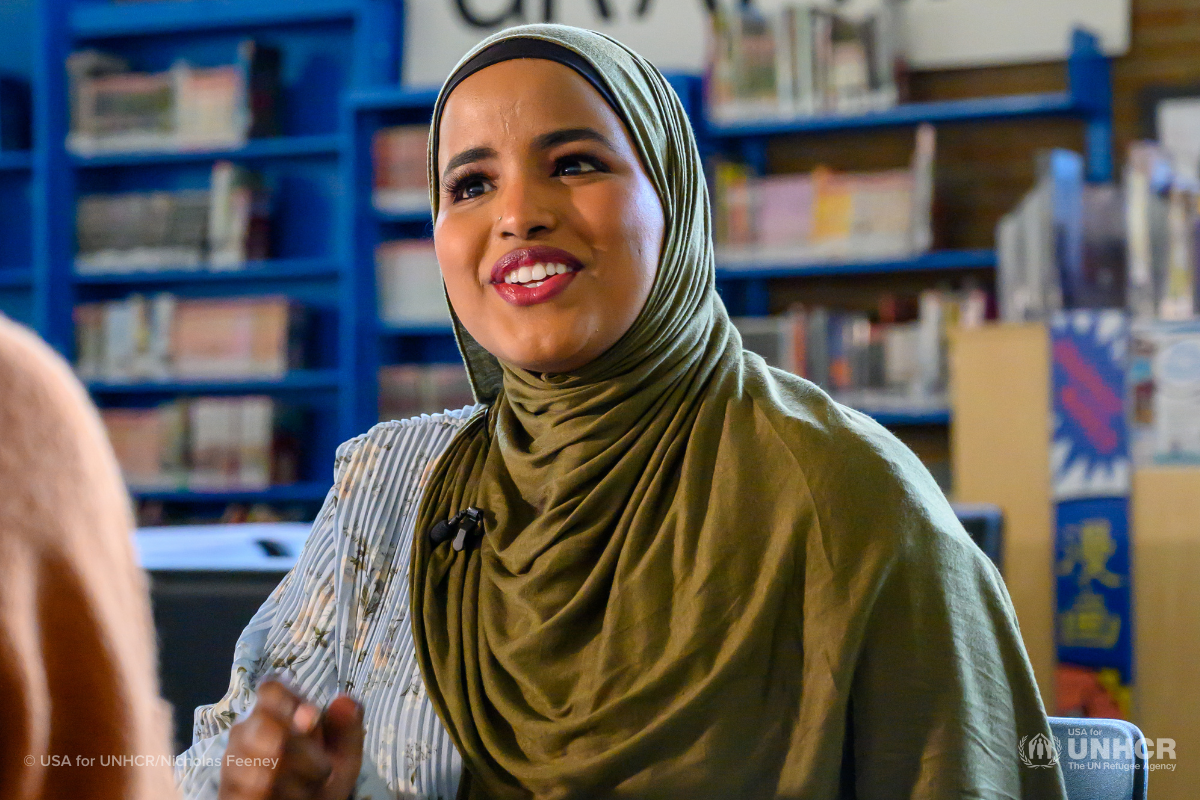
Halima, a refugee from Somalia, was resettled with her family in Boise, Idaho, when she was in the fourth grade. As a newcomer unfamiliar with the language and had little understanding of the culture, Halima struggled to build self-confidence and embrace her identity. “I used to hide many parts of myself, parts of my identity, especially being a refugee,” she shares. “I would hide the fact that I'm Muslim. I remember taking off my hijab, going to class with my hair out with jeans, and completely throwing away many parts of myself.”
But all that changed when Halima found a community where she belonged in high school. “I saw people that looked like me, people that had the hijab on,” Halima says. “And so, I put back on my hijab, and I think [that’s] when I started celebrating myself – when I started embracing my identity, and that's when I was so powerful…and so confident.”
In high school, Halima enrolled in the AVID program, a college preparatory program for high-achieving students, was a student participant on a council in the Mayor’s office and was involved in other community action groups. Halima was building the skills and acquiring experiences to fuel her future advocacy work. According to her teacher, Halima’s “superpower [is] being able to plug into what is happening right now but also always having this vision for herself out ahead.”
Halima went on to study Political Science at Boise State University. She earned a Truman Scholarship, a prestigious national scholarship awarded to 50 students annually who exhibit a commitment to public service, high academic achievement and leadership qualities. Now, as a graduate student at the University of Minnesota’s Humphrey School of Public Affairs, Halima is focused on advocating for other refugee women and empowering them to embrace what makes them unique.
Laura
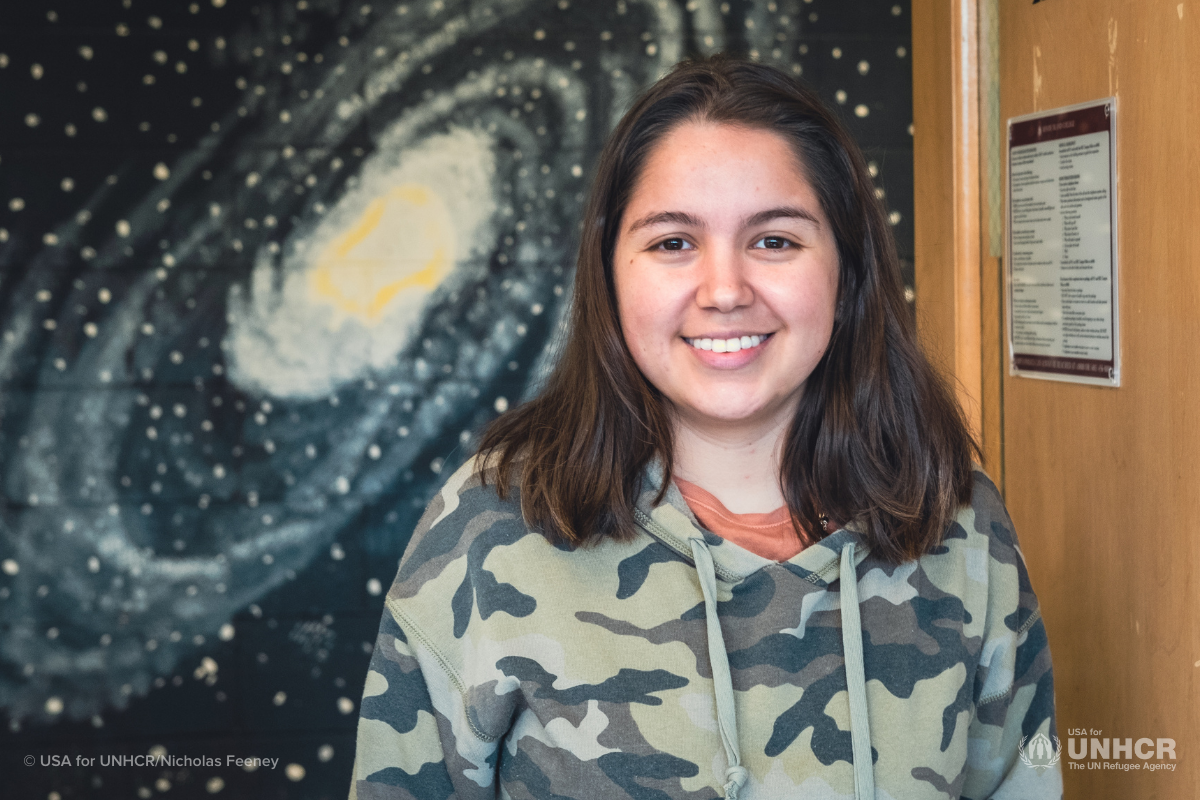
Laura was forced to flee with her family from their home in Colombia when crime and gang violence began to escalate in their neighborhood. After living as a refugee in Ecuador, she was selected for resettlement in the United States and moved to Providence, Rhode Island.
At first, Laura struggled to learn English and adapt to the new culture. She worried that she would be unable to keep up with her high school classes, so she dedicated herself to learning English, and with the help of her ESL teacher, she became fluent within a year. Laura graduated high school and began classes at Rhode Island College, where she discovered she could combine her childhood dream of becoming an astronaut with her passion for engineering.
Now, as a college graduate, Laura is committed to realizing her dream of becoming a NASA astronaut and encourages other refugees in her position to believe in themselves.
“I think of other people that are going through stuff and, it might seem like there's no way out, that you're trapped and that nothing will ever get better. With a little bit of help, we can all overcome and be happy,” Laura shares.
Methusella
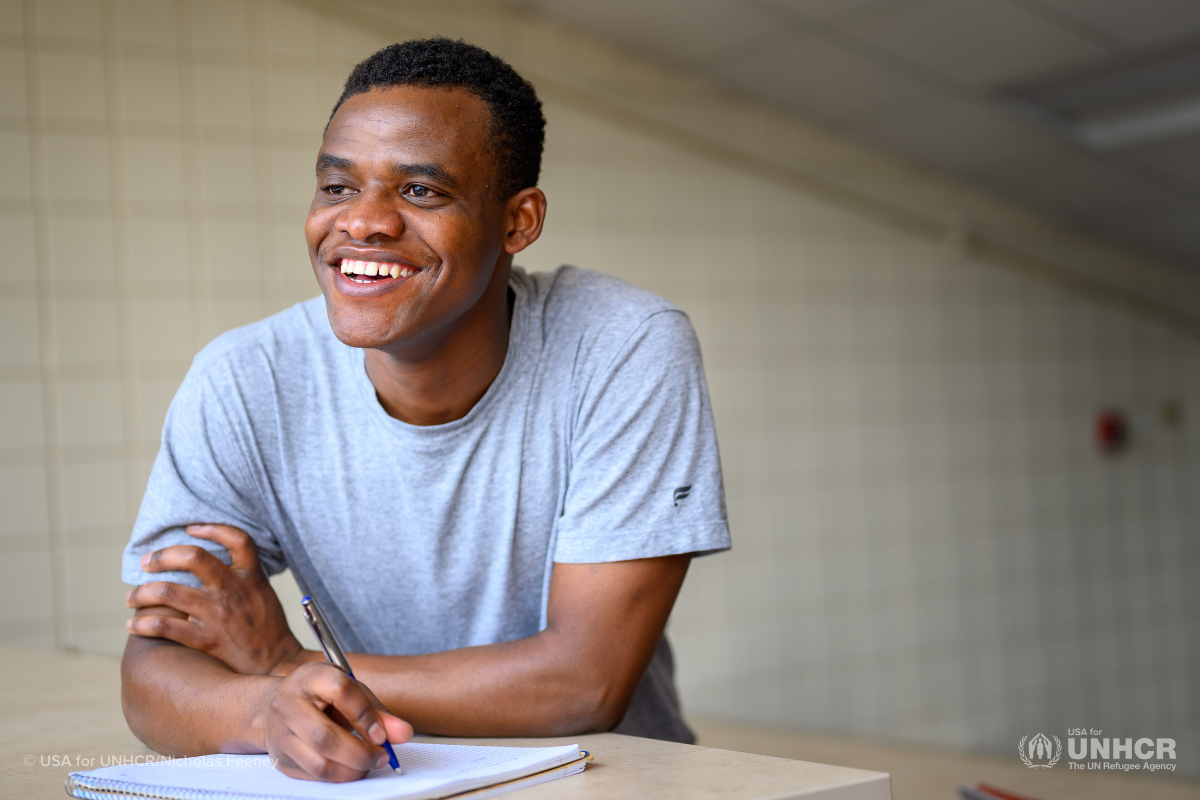
Methusella was born into conflict and violence in the Democratic Republic of the Congo. His family sought refuge in Uganda, where Methusella hoped he would be able to continue his schooling. “Life was not easy there and I soon recognized that things that I loved, like going to school, were no longer a guarantee,” he shares. “When classes were offered, the classrooms were always overcrowded and under-resourced.”
Years later, when Methusella was a teenager, he was resettled in Denver, Colorado, where he quickly found a community at school. He attended the University of Denver, majored in Political Science, served in student government, became president of the soccer team and interned for Senator John Hickenlooper.
A natural leader, Methusella worked to build opportunities for others in his community to find hope through education and sports. He co-founded Colectivo de Paz, a nonprofit organization that provides resources for marginalized individuals in Denver.
Haya and Ghena
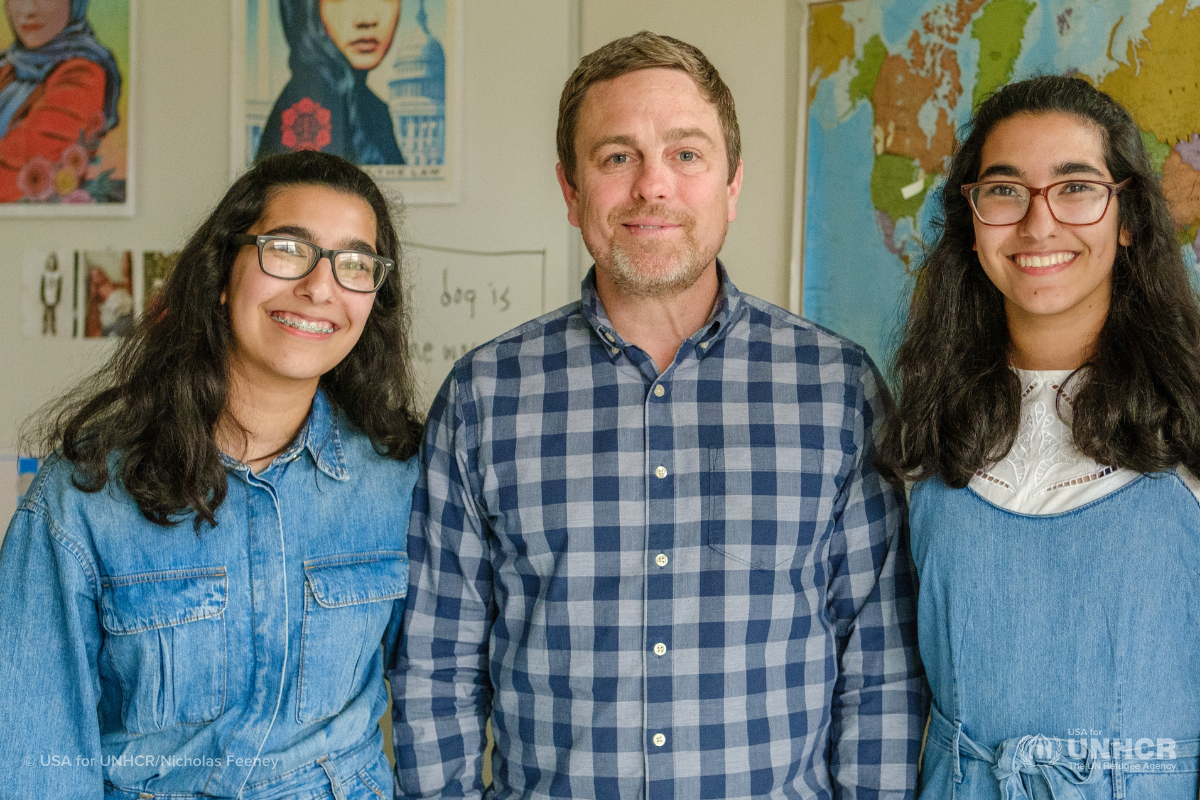
Twin sisters Haya and Ghena were born as refugees in Jordan after their parents and older siblings fled threats of kidnapping and persecution in Iraq. When the twins were just three years old, the family resettled in the United States and offered a chance to rebuild a peaceful life.
The sisters attended high school in West Springfield, Massachusetts, where they found a diverse and supportive community. The main entrance of West Springfield High School showcases more than 50 flags from around the world, each representing the home country of current students. Haya and Ghena excelled academically and were active in numerous after-school activities — including playing as doubles partners on the tennis team and working to clean up their community and help the environment as part of their school’s Trash Club.
“We got involved with Trash Club because we wanted to help the environment because we want to nurture it, we want to preserve it as much as we can.” Haya shares. Their teacher, Damien Johnson, explained their amazing impact on the community. “They worked with the mayor, they presented their research, they went to the city council. And they convinced them to pass this legislation.”
“With Ghena and Haya… every time you do something like that you don’t say ‘Wow I did that! I’m finished.’ It’s always like ‘Hey, I pulled that off! What else can I do? What can I do next?’ And Ghena and Haya are the type of kids that think that way,” Damien continues.
Night-Jean
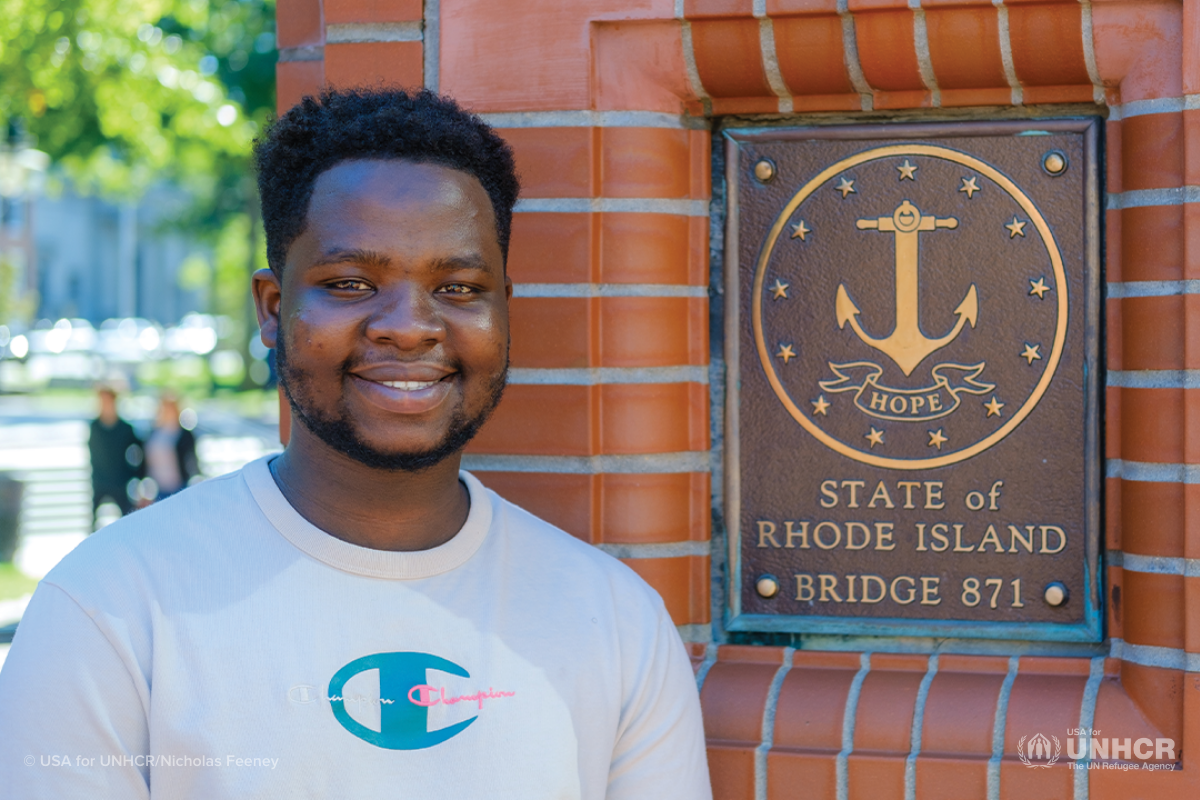
Night-Jean was born into a difficult life in a refugee camp in the Democratic Republic of the Congo. He recalls that by the age of nine, he was working every day to help his family simply obtain the basics of survival — water, food and clothing — but that through it all, his mother instilled in him the value of education.
“My mom values education a lot. I think I got a lot from my mom because when the war started she was actually at school and she came home looking for her parents and they weren’t there. I think my mom wanted me to finish school because she didn't have the opportunity to finish,” Night-Jean shares. “So in the refugee camp, she really made sure we went to the school, even though it was very far away and sometimes we had to walk to school barefoot.”
Night-Jean's passion for writing and poetry was born as a coping mechanism for the challenges and pain of life in the refugee camp. When he resettled in Providence, Rhode Island as a teenager, poetry helped introduce him to his mentor, Dr. Omar Bah, a refugee advocate and co-founder of the Refugee Dream Center.
While attending Rhode Island College, where he studied Public Administration and prepared to apply for graduate school, Night-Jean volunteered at the Refugee Dream Center and was eventually hired as the youth coordinator.
“The most important thing is education,” shares Night-Jean. “I believe that we can achieve everything that is available in this country with education. That’s why I advocate for it.”
How to help…
Students like these are just a few of the young refugees beginning to build a brighter future in the United States. By becoming a USA for UNHCR monthly donor, you can support refugees through their entire journey, from the moment they are forced to flee their homes to the days when they reach safety.
